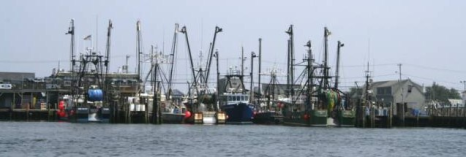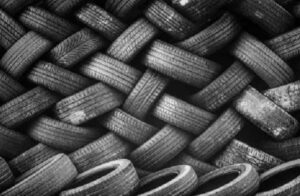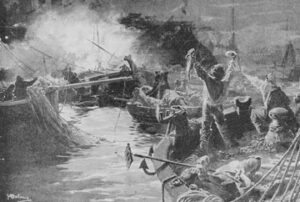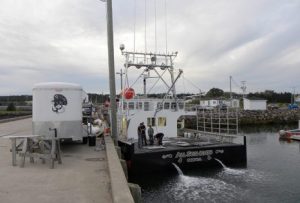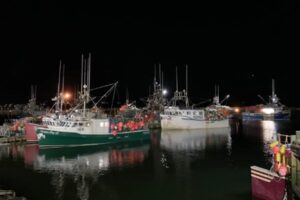Daily Archives: January 18, 2015
Time to challenge the fisheries oligarchs
 On the fish-catching side of the equation, the federal government distributes fish quotas under the so-called Individual Transferable Quota System (ITQ). It means that a licence holder is issued their own quota every season, the theory being that this avoids “The Tragedy of the Commons” — another euphemism of economists for overfishing. In fact, if the quotas are too high it is still overfishing by another name. Even economists and governments can not beat biological reality although they are experts at explaining away their mistakes. Read the rest here 15:30
On the fish-catching side of the equation, the federal government distributes fish quotas under the so-called Individual Transferable Quota System (ITQ). It means that a licence holder is issued their own quota every season, the theory being that this avoids “The Tragedy of the Commons” — another euphemism of economists for overfishing. In fact, if the quotas are too high it is still overfishing by another name. Even economists and governments can not beat biological reality although they are experts at explaining away their mistakes. Read the rest here 15:30
Alaska’s Bering Sea crab fishery gets underway
 As of Jan. 9, fishermen had harvested 10 million pounds of snow crab, from a 67.95 million pound quota, according to Fitch, who said 42 vessels had participated so far, and more are expected including boats presently fishing for Tanner crab or Pacific cod with the same pots used for crab fishing. She expects that total participation will rise to about 70 vessels chasing snow crab. Read the rest here 13:37
As of Jan. 9, fishermen had harvested 10 million pounds of snow crab, from a 67.95 million pound quota, according to Fitch, who said 42 vessels had participated so far, and more are expected including boats presently fishing for Tanner crab or Pacific cod with the same pots used for crab fishing. She expects that total participation will rise to about 70 vessels chasing snow crab. Read the rest here 13:37
Land & Sea archival extra: 1968 New hand line – Video
 In this 1968 segment, Land & Sea‘s Hal Andrews talks with fishermen about a new technique — the hand line. The fishermen learned it from the Portuguese, and those who were using it were having great success. As one man told Andrews, “It’s a great way to catch a bit of fish.” Watch the video here 11:46
In this 1968 segment, Land & Sea‘s Hal Andrews talks with fishermen about a new technique — the hand line. The fishermen learned it from the Portuguese, and those who were using it were having great success. As one man told Andrews, “It’s a great way to catch a bit of fish.” Watch the video here 11:46
Canada-U.S. delegates meet in B.C. to discuss halibut ‘wastage’ in Bering Sea
 You might say it’s a story about the fish that didn’t get away. Fishermen in the Bering Sea off the coast of Alaska are tossing back millions of kilograms of dead halibut they’ve caught unintentionally while scooping up other stocks. The longtime practice, known as bycatch, has become the focus of intense scrutiny in Alaska and will be the subject of debate at a meeting at month’s end of the International Pacific Halibut Commission in Vancouver. Read the rest here 11:13
You might say it’s a story about the fish that didn’t get away. Fishermen in the Bering Sea off the coast of Alaska are tossing back millions of kilograms of dead halibut they’ve caught unintentionally while scooping up other stocks. The longtime practice, known as bycatch, has become the focus of intense scrutiny in Alaska and will be the subject of debate at a meeting at month’s end of the International Pacific Halibut Commission in Vancouver. Read the rest here 11:13
Alaska Marine Safety Association adds staff and new courses
 New course offerings from AMSEA include an eight and a half-hour Mariner’s First Aid and CPR workshop and a thirty-six hour Wilderness Advanced First Aid workshop. The Mariner’s First Aid and CPR workshop is tailored to the needs of fishermen, mariners and others in remote environments. Attendees receive a U.S. Coast Guard-accepted first aid and CPR certification from American Safety and Health Institute that is valid for two years. Read the rest here 10:54
New course offerings from AMSEA include an eight and a half-hour Mariner’s First Aid and CPR workshop and a thirty-six hour Wilderness Advanced First Aid workshop. The Mariner’s First Aid and CPR workshop is tailored to the needs of fishermen, mariners and others in remote environments. Attendees receive a U.S. Coast Guard-accepted first aid and CPR certification from American Safety and Health Institute that is valid for two years. Read the rest here 10:54
Reuse of Fish Waste Yields Organic Liquid Fertilizer
 With an expanding spiny dogfish catch, AMT BioProducts Inc. is beginning a $685,000 expansion from its current operations at 33 Cape St. into an adjacent 9,100-square-foot plant that is expected to double the company’s production capacity. But AMT BioProducts doesn’t package fish, it processes fish waste into commercial-grade organic liquid fertilizer. Also, an interesting read about the dogfish “stock” and assessment. Read the rest here 10:42
With an expanding spiny dogfish catch, AMT BioProducts Inc. is beginning a $685,000 expansion from its current operations at 33 Cape St. into an adjacent 9,100-square-foot plant that is expected to double the company’s production capacity. But AMT BioProducts doesn’t package fish, it processes fish waste into commercial-grade organic liquid fertilizer. Also, an interesting read about the dogfish “stock” and assessment. Read the rest here 10:42
DAVID G. SELLARS ON THE WATERFRONT: Too heavy to hoist
Platypus Marine, the full-service shipyard, yacht-repair facility and steel-boat manufacturer on Marine Drive in Port Angeles, attempted to haul out Sea Mac (freshly repowered), an 87-foot steel commercial fishing vessel that had developed issues with her running gear while underway from Seattle to Alaska. However, she had taken on a full load of diesel, Read the rest here 10:17
Rhode Island Fishermen’s Alliance Weekly Update, January 18, 2015
The Rhode Island Fishermen’s Alliance is dedicated to its mission of continuing to help create sustainable fisheries without putting licensed fishermen out of business.” Read the update here To read all the updates, click here 10:02
Macaluso: Will new Congress take stance?
 Unless and until Congress changes the Magnuson-Stevens Fish Conservation and Management Act, the federal mandate with a long name, Gulf of Mexico recreational fishermen will continue to have their pockets picked. That’s because when it comes to the management tactics and schemes, recreational fishermen have suffered far more than the commercial side. Read the rest here 09:56
Unless and until Congress changes the Magnuson-Stevens Fish Conservation and Management Act, the federal mandate with a long name, Gulf of Mexico recreational fishermen will continue to have their pockets picked. That’s because when it comes to the management tactics and schemes, recreational fishermen have suffered far more than the commercial side. Read the rest here 09:56






